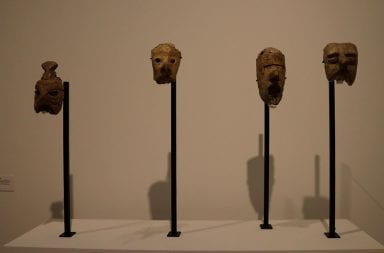In 1821, with a two-story house and a tea garden on Mercer Street in present-day Greenwich Village, a Caribbean man’s dreams gave birth to African-American theater.
Since then, African-American theater has continued to flourish despite the historical barriers it has encountered along the way. In his lecture, “Black Theatre from Birth to Rebirth to Survival”, Dr. Anthony D. Hill will give insight into the barriers, themes, and history of this genre, beginning with the notorious African Grove Theater Company.
The company founded by William Alexander Brown became the first known professional African-American theater company. Hill said it set the standards for future companies, because it showed that African Americans could hold their own against mainstream theater companies. The theater received praise for its renditions of the classics “Othello” and “Richard III.” It was home to the first sketch about the institution of slavery, which Hill says was monumental because many in the South were still enslaved.
The theater sparked the careers of African-American actors such as James Hewlett and Ira Aldridge. It had a successful three-year run until it was burned down.
Hill believes that the success of the African Grove theater company proved that African-American theater was a viable genre. But over a century later, African-American actors and actresses still face obstacles.
He said color stratification is still an issue when hiring African-Americans in the industry. African-American women of lighter complexion are more favored by directors and producers. When being cast in roles, he says African-American women are often portrayed as sex objects. Regional and Broadway theater companies still haven’t considered African-Americans for mainstream plays.
Hill feels playwrights like two-time Pulitzer Prize winner August Wilson are striving to change this mentality. Wilson insists that only African-American actors and directors will be involved in his plays until the tables are balanced.
“They still don’t seem to cast blacks in roles that aren’t specified for their color,” Hill said.
Despite these challenges, African-American theater has managed to tell the history of African-Americans in this country. Hill says the themes often expressed in these plays are racism, community, family, religion, materialism and black nationalism. The works of playwrights like Wilson and Lorraine Hansberry (“A Raisin in the Sun”) has managed to find mainstream audiences. Hill stated their works helped launch the careers of greats like Sidney Poitier and Ruby Dee.
Those attending his lecture can expect to hear more of an overview of African-American theater, beginning with the African Grove in 1821 until the present-day National Black Theater Festival held in Winston-Salem, N.C. His presentation will show different illustrations of theaters and practitioners. He will discuss major themes and key movements.
The lecture will be based on his book, “Historical Dictionary of African American Theater.” Hill hopes his book can be a reference for those who want to know more about this genre.
Hill said, “It’s important for the readers to understand that African American theater is a viable genre that can enrich their lives … the more they delve into African-American culture, they will learn more about themselves and their surroundings.”
The lecture will be held Jan. 21 from 6 to 7 p.m. at the African-American and African Studies Community Extension Center, 905 Mt. Vernon Ave.


